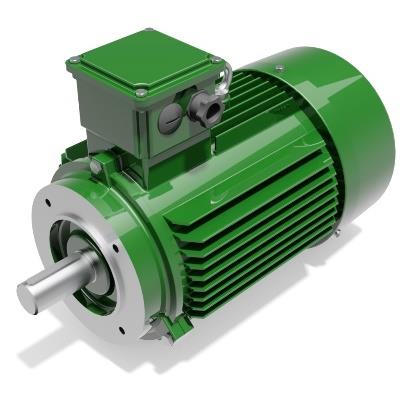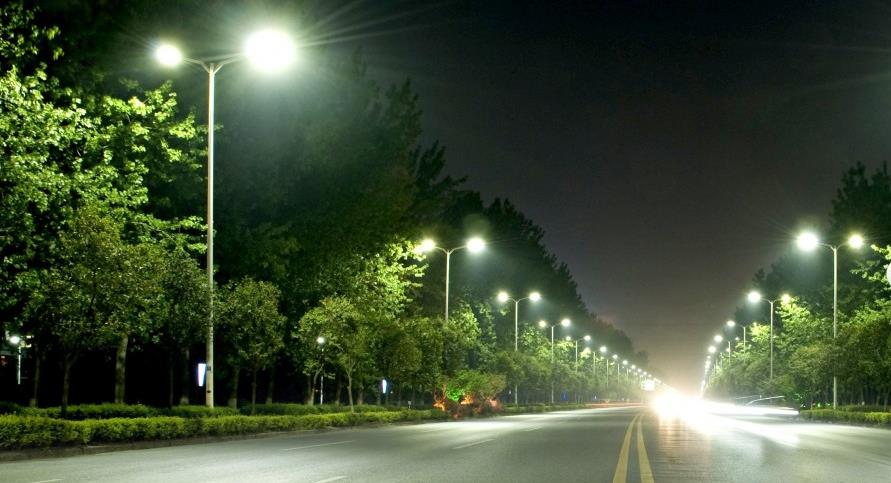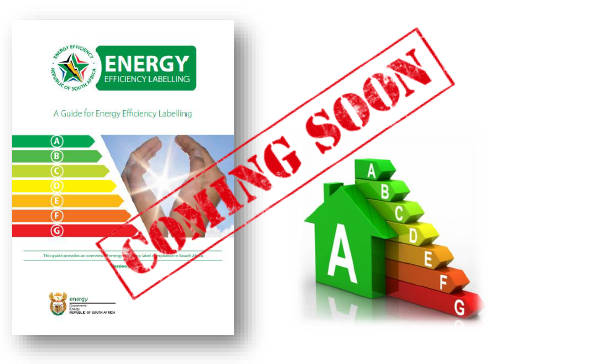Newsletter Issue 16 November 2021

PROGRAMME MANAGER'S MESSAGE
S&L Greetings to you all. I trust that those of you based in South Africa are managing through the turbulence of load shedding as we look to closing off what we hope has been a productive year for you. Regular power-cuts are the result of an imbalance in the demand and supply of electricity, so I would like to take this opportunity to encourage our readers to enjoy using electricity in moderation so that there is more power to go around. I imagine that we would want to share the available capacity, as opposed to sharing the lack of it thereof.
The use of lights and household appliances contribute notably to residential electricity consumption across all income groups. SANEDI in partnership with the Department of Mineral Resources and Energy and the University of Cape Town recently published enlightening data in our latest research report: “Residential Electricity Consumption in South Africa” which can be read or downloaded here.
Electricity consumption data is crucial for end users to identify economic and energy savings potential areas. It is also important for us as researchers and policy makers to inform the development/improvement of appliance standards and effective energy efficiency labels. The past couple of months have seen government make strides in upgrading and aligning existing regulations, i.e. the revision of VC9008 and the alignment of water efficiency standards. Through the DMRE-CLASP-SANEDI partnership, the Programme is undertaking various research projects to inform minimum energy performance standards (MEPS) for some new ‘kids on the block’ for South Africa’s regulatory framework. These new technologies to be regulated include electric motors, electronic displays, and higher efficiency street lighting. This S&L news issue will take you through some key milestones of the Programme. For more information regarding any of the updates shared, please enquire and/or share your interests here.

Programme Manager: Ashanti Mogosetsi
PROPOSED AMENDMENTS TO VC9008
 The National Regulator for Compulsory Specifications has recently drafted proposed amendments to the existing Compulsory Specifications for Energy Efficiency and Labelling of Electrical and Electronic Apparatus, first instated in 2014. The proposed amendments have been submitted to the Department of Trade, Industry and Competition (Dtic) for sign off and to be gazetted by the Dtic Minister. The S&L Programme is following this progress closely and will share timeous updates to inform the public of the status of the regulation.
The National Regulator for Compulsory Specifications has recently drafted proposed amendments to the existing Compulsory Specifications for Energy Efficiency and Labelling of Electrical and Electronic Apparatus, first instated in 2014. The proposed amendments have been submitted to the Department of Trade, Industry and Competition (Dtic) for sign off and to be gazetted by the Dtic Minister. The S&L Programme is following this progress closely and will share timeous updates to inform the public of the status of the regulation.
The above-mentioned study on electricity consumption in South Africa includes comparative scenarios including the proposed VC9008 regulatory amendments to determine likely energy savings. Have a look at the data for yourself and prepare to engage us once the document is out for public comment.
ELECTRIC MOTORS TECHNO-ECONOMIC STUDY
 Electric Motors are widely used across various applications, which makes them significant contributors to energy consumption in the residential sector and mostly energy intensive industries. This product therefore requires regulation. The risk of not establishing minimum energy performance standards (MEPS) for electric motors remains significant to mass energy savings and increased efficiencies that could be realised from higher efficiency electric motors. South Africa currently does not have the relevant MEPS instated.
CLASP-appointed research lead, Dr. Theo Covary, has finalised a Cost Benefit Analysis to introduce MEPS for electric motors in South Africa for submission to the DMRE. The report will be presented to all stakeholder organisations, and individuals interested in participating and/or providing input to the Assessment to inform legislation. The workshop will take place on 9 December 2021 from 14:00-15:30 (SAST). If you have note received the invitation to this presentation and would like to be invited, please email your details here to receive event details.
Electric Motors are widely used across various applications, which makes them significant contributors to energy consumption in the residential sector and mostly energy intensive industries. This product therefore requires regulation. The risk of not establishing minimum energy performance standards (MEPS) for electric motors remains significant to mass energy savings and increased efficiencies that could be realised from higher efficiency electric motors. South Africa currently does not have the relevant MEPS instated.
CLASP-appointed research lead, Dr. Theo Covary, has finalised a Cost Benefit Analysis to introduce MEPS for electric motors in South Africa for submission to the DMRE. The report will be presented to all stakeholder organisations, and individuals interested in participating and/or providing input to the Assessment to inform legislation. The workshop will take place on 9 December 2021 from 14:00-15:30 (SAST). If you have note received the invitation to this presentation and would like to be invited, please email your details here to receive event details.
STREET LIGHTING LUMINAIRE MEPS
 The S&L Programme is supporting the DMRE in its efforts to introduce and implement an energy efficiency standard to street lighting luminaires. Research Lead, Mr. Bjorn Smidt- Hart has been appointed by CLASP to conduct various assessments to inform the standard. The development of a minimum energy performance standard for street lighting luminaires is set to be in alignment with the DMRE’s National Energy Efficiency Strategy, Energy Efficiency Demand Side Management (EEDSM) programmes and Energy Efficiency Street Lighting Retrofit Projects (EEStLRP).
The S&L Programme is supporting the DMRE in its efforts to introduce and implement an energy efficiency standard to street lighting luminaires. Research Lead, Mr. Bjorn Smidt- Hart has been appointed by CLASP to conduct various assessments to inform the standard. The development of a minimum energy performance standard for street lighting luminaires is set to be in alignment with the DMRE’s National Energy Efficiency Strategy, Energy Efficiency Demand Side Management (EEDSM) programmes and Energy Efficiency Street Lighting Retrofit Projects (EEStLRP).
In order for the development and implementation of such a beneficial standard to be successful , the following steps have been identified through key stakeholder consultations: a comprehensive market study, socio-economic impact modelling, initial drafting of the standard and associated test procedures based on international best practice, selecting minimum energy performance standards through a rigorous consultative process, developing compliance frameworks (including inspection, testing and market surveillance), creating awareness and developing financing mechanisms with the potential to support and accelerate the implementation of efficient street lighting luminaires. On this basis, SANEDI and CLASP are conducting relevant surveys a data gathering to initiate and support the comprehensive market study, socio-economic impact modelling and economic appraisal processes.
We have identified stakeholders to participate in the surveys. These stakeholders are identified as potentially being impacted by the implementation of a minimum energy efficiency and performance standard for street lighting luminaires.
Keep posted to our news updates for more information regarding the assessment reports and future public consultation events that will be hosted to get your inputs.
REVISED SOUTH AFRICAN EE LABEL STANDARDS AND LABELLING GUIDELINE

EXPRESSION OF INTEREST: EELA TECHNICAL ASSISTANCE AND CO-FINANCING FACILITY- DEADLINE: 31 DECEMBER 2021
The Energy Efficient Lighting and Appliances in East and Southern Africa (EELA) Project invites energy users and energy service providers to submit Expressions of Interest (EoI) for technical and financial support to develop and implement energy efficient lighting and appliances projects in the East African Community (EAC) and Southern African Development Community (SADC) Member State(s). The first phase of the EoI shall be valid until 31 December 2021. Read more about it here.
Twitter: @SA_Energy_Label
Facebook: @SA_Energy_Label
Youtube: SA Energy Label
Follow SANEDI on social media
Facebook: @sanedi.org
Twitter: @sanedi_org
LinkedIn: @sanedi.org
About SANEDI
The South African National Energy Development Institute (SANEDI), established by the Government, directs, monitors and conducts applied energy research to develop innovative, integrated solutions to catalyse growth and prosperity in the green economy. It drives scientific evidence-driven ventures that contribute to youth empowerment, gender equity, environmental sustainability and the 4th Industrial Revolution, within the National Development Plan (NDP), through consultative, sustainable energy projects. For more information, go to www.sanedi.org.za .
Update your details or subscribe to our monthly newsletter at no cost here
